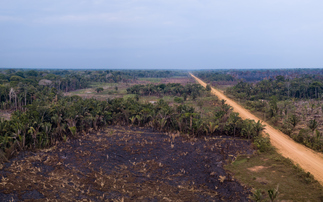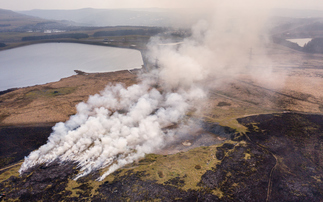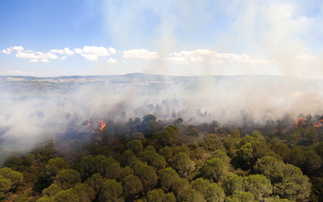Credit: iStock
Investor-led engagement initiative publishes first set of guidelines and benchmarks to aid investors in assessing nature-related risks posed to companies
Nature Action 100 has today unveiled the first set of benchmark indicators through which the investor-led engagement initiative plans to assess the environmental ambitions, actions, and disclosures of the 100 major companies it is calling upon to curb their impacts on nature.
Developed in consultation with investors, academics, and Indigenous Peoples around the world, the Nature Action 100 Company Benchmark comprises six key indicators covering ambition, assessment, targets, implementation, governance, and engagement.
They are also underpinned by 17-sub indicators and 50 metrics, and are designed to align with various other nature target-setting and disclosure frameworks, such as those developed by the Science Based Targets Network and the Taskforce for Nature-related Financial Disclosures (TNFD), Nature Action 100 said.
The benchmark is designed to be used by the more than 200 major investors participating in the initiative, in order to support better understanding of the material nature-related financial risks in their portfolios, and how to manage these threats to protect the long-term interest of clients.
First established in 2022 as a global initiative, Nature Action 100 aims to catalyse greater corporate action to reverse nature and biodiversity loss to help mitigate financial risks, in line with the Global Biodiversity Framework's aim to halt and reverse nature loss from 2030.
Mirroring the model established by the Climate Action 100+ group, the initiative is seeking to engage with 100 major companies that span eight sectors which have significant impacts and dependencies on nature, ranging from meat and dairy producers and metals and mining firms, to forestry management and pulp and paper firms, and food and beverage retailers.
Firms involved in manufacturing household goods, biotechnology, pharmaceuticals, e-commerce, and packaging are also being targeted by the initiative, which is co-led by non-profits Ceres and the Institutional Investors Group on Climate Change (IIGCC).
Specific companies being targeted include Amazon, Alibaba Group, Bayer, AstraZeneca, Glencore, Danone, Kraft Heinz, McDonald's, Mondelez International, PepsiCo, Pfizer, Rio Tinto, Unilever, Wilmar International, Walmart, and Tyson Food.
The first company assessments undertaken by Nature Action 100 investors using the benchmarks unveiled today are expected to begin later this year, and are then set to be carried out annually as part of the initiative's ongoing engagement strategy.
Leslie Cordes, vice president of programs at Ceres, said the new company nature assessment benchmark promised to be a valuable resource for the investors looking to engage with companies with regards to their nature and biodiversity efforts.
"The Nature Action 100 Company Benchmark will be a powerful tool to support investors as they evaluate corporate progress and help them to hold companies accountable for their contributions to nature and biodiversity loss," she said. "The benchmark indicators announced today lay out clear high-level expectations for the ambitious actions that investors have called on companies to take to mitigate their nature-related financial risks."
The announcement comes on the same day as new analysis from the UK's Green Finance Initiative (GFI), which provides a first-of-its-kind assessment of the material nature-related risks present to the UK's financial stability. The study calculated the impacts of worsening nature-degradation could drive down UK GDP by up to £300bn in the 2030s.
Stephanie Pfeifer, CEO of the IIGCC, today echoed calls in the GFI study for the financial sector to urgently assess, disclose, and move to mitigate the nature-related risks and dependencies in its portfolios.
"While climate mitigation has been a major focus of investors' corporate engagement to date, overall there has been less attention and action on nature and biodiversity despite also posing clear systemic and individual asset level financial risks," she said. "The Nature Action 100 Company Benchmark is therefore a major milestone and will be a valuable tool for investors seeking to better understand and manage these risks, as well as the potential opportunities."
Keep up to date with all the latest green business news by signing up to the free Daily and Weekly BusinessGreen Newsletters.











